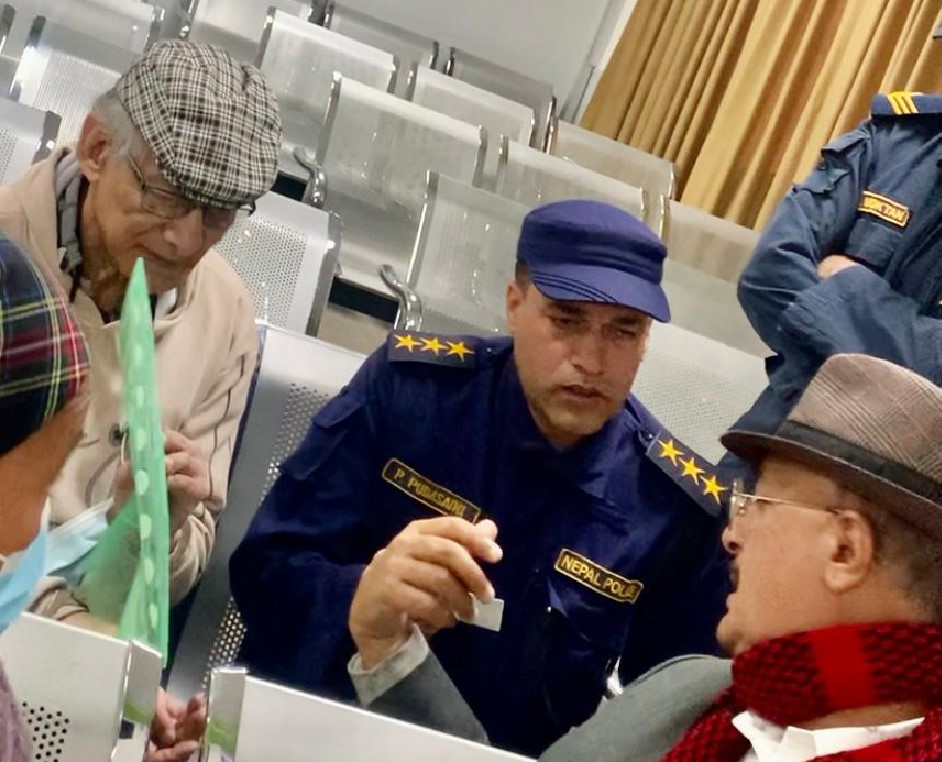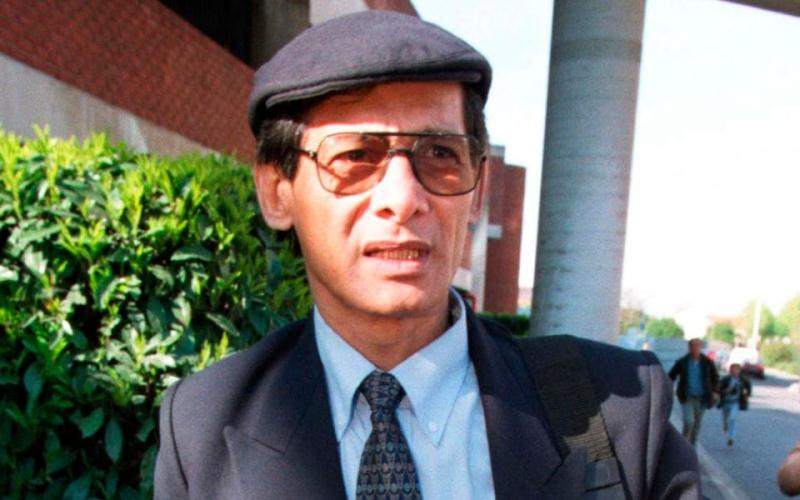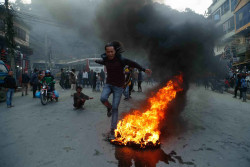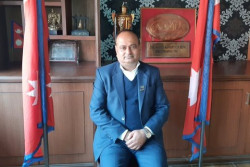Crime

Charles Sobhraj conjures up images of a serial killer responsible for the murder of nearly 20 people. His story has inspired popular crime series such as The Serpent. But what is the 78-year-old like as a human being? Read reflections of one of his Nepali lawyers, Gopal Siwakoti ‘Chintan’:
How did I meet him?
I met Charles Shobhraj at the Central Jail in Kathmandu through jail staff. There was a standing Supreme Court judgement under which advanced-age criminals serving jail terms would benefit from provisions such as parole, community service, open prison and employment in factories – to mention a few. The judgement came amid Covid-19 in 2020. Unfortunately, the government has not yet implemented this judgment for over two years.
The irony is that the court had ordered its implementation within a week. Implementation of this court order would have guaranteed Sobhraj's early release because of his old age and fragile health. The jail staff approached me for legal advice, assistance and court actions. I accepted with some hesitations, given his past records as reported in the media and scripted in numerous books. I thought through and concluded that a lawyer cannot – rather must not – be judgmental about anyone's past or present but service the rights and interests of any natural person as a client.
My Observations of Charles Sobhraj
1671780907.jpeg)
On the face of it, it was a simple case related to the application of Rule 29(2A) of the existing Prison Rules that dates back to 1963. This provision provides for the release of any person of good conduct while in jail and has crossed the age of 65 by granting up to 75 per cent prison term waiver. But the case had become a bit too complicated after the government failed on three different occasions to decide whether he was eligible for such a prison term discount as per the orders of the Patan High Court in 2017 and the Supreme Court in 2020 and 2022.
There was also an issue of compliance with the precedence that a Canadian citizen in prison was released upon the habeas corpus order of the Supreme Court on grounds of his age and health as per the above Rule. The unwillingness of the government not to release Shobhraj at any cost was another issue in which the government was trying to prove that his conduct is not necessarily good. The court rejected the government's double standard and its inability to prove that Charles had bad conduct.
Sobhraj on his case
Sobhraj was not disappointed with the Supreme Court. He knew the court always acted speedily in his case. Sobhraj appealed to the Human Rights Committee established under the International Covenant on Civil and Political Rights (1966), of which Nepal is also a State Party. His complaint at the committee was mainly about the lack of a fair trial in his case, as he has claimed that the case had been fabricated to put him behind the bar at any cost. The committee made positive observations to this complaint and asked the government to reply within 80 days as regards the fairness of his trial and consider offering him the right to a fair trial.
The UN always advocates compensating the victims of injustice, but it depends on domestic legal provisions. Nepal does not have a provision to compensate those released from prison with a clean cheat. We need such a law to prevent police and the government from their systematic and even corrupt practice of fake criminal charges, fake evidence, fake trial, and unjust imprisonment, which has become a legal epidemic in Nepal in recent decades. But the government never replied, and 19 years and 2 months passed by. He is now out through a different legal procedure.
Why did it take so long?
I would say it is due to the lack of enthusiastic, effective, and professionally expert lawyers on the subject matters of prisoners' rights and available constitutional provisions and international human rights law. Otherwise, the same legal case could be made as soon as he crossed the age of 65 - some 14 years ago. But as the final decision by the Supreme Court was a prerequisite, he could be released some six years ago easily and legally. The Supreme Court upheld the lower court's ruling of 20-year life imprisonment on April 7, 2017.
Legal basis for his release
Sobhraj's release became possible purely based on his advanced age and as per the existing law - Rule 29(2A) of the Prison Rules 1963. The main basis is his good conduct than his advanced age, although he was dragged into several other cases too. Good conduct in the case of a prisoner is not committing any crimes while inside.
The government had pleaded that he had bad conduct in the past. But the Supreme Court was interested only in his conduct during the period of its first order of February 24 2019, asking the government to make a decision within three months as to his release under the above Prison Rule.
My impressions of Sobhraj as a client

I always found him a man of good manners, intelligence, and hard work in the sense of reading and writing. I was also very impressed by his incredible knowledge of legal, human rights and criminal jurisprudence of not only Nepal but also India, the UK, Europe, the US and the UN system. Equally important has been his concerns towards other fellow prisoners, having suffered from unfair trials, inadequate food and nutrition, poor living conditions and the lack of proper space for sleep, clothes, health care and so on.
These are, of course, very genuine issues of concern even now. He even filed a writ petition at the Supreme Court asking for an adequate ration for proper food and health. The case is still under the hearing process. So he has been acting actively and always with great patience as equal to a human rights lawyer and activist. I also found him philanthropic.
The latest legal battle at Supreme Court
No, none of the writ petitions had been rejected by the court. The court always ordered the government to decide 'yes' or 'no' regarding his release under the Prison Rule. For this, the court waited for some four years, giving the government a series of chances to decide in his case. But the government always ignored three court orders. It was already an issue of contempt of court. But I chose the procedure of habeas corpus rather than the contempt of court.
The contempt case would have taken a longer time than the habeas corpus. In all this, the only legal issue was his conduct, and the Prison Office of Central Jail had already recommended his release under the above Rule in 2018 and 2019. And such a recommendation could only be made in the case of prisoners who have had good conduct.
Extraordinary and controversial man
Well, he is an extraordinary person, judging from his involvement in various controversial cases and issues. He says he did a lot of work to save human lives by releasing hostages from Indian Airlines flight IC814 that was hijacked from Kathmandu to Afghanistan on December 24, 1999. He claims he prevented Osama bin Laden from doing more bombings. I am not in a position to comment on that. Meanwhile, he may have more legal battles to fight elsewhere. I also cannot share them as his lawyer upholds professional confidentiality.
After his release, he wants to do a lot of work to help victims of injustice and others. I'm impressed that he remains physically and mentally active even at age 78 – even after serving several decades in prisons, mainly in India and Nepal.
Also Read: Exclusive: 'I'm feeling great', says Charles Sobhraj
My suggestion to Sobhraj
Definitely, he has had a chequered past, starting from his childhood to early education, family and so on. He might have also been used, exploited and manipulated by many to make a name, fame and money. Every person has positive and negative vibrations. But as the world is more interested in the negative stories, he could be a source of all that. I'm sure he will reveal more in the days to come.
I think what he was put through – the ridiculous and inhumane solitary confinement for 19 years and two months – is against the minimum UN standards related to the treatment of prisoners. Without caring much about his past, as a lawyer, I would expect him to transform himself into a modern Milarepa, Emperor Ashok, or Valmiki sage who authored Ramayana. The choice will be entirely his.
Gopal Siwakoti 'Chintan', PhD in Law
Senior Advocate and international human rights lawyer
December 22, 2022, Kathmandu, Nepal






